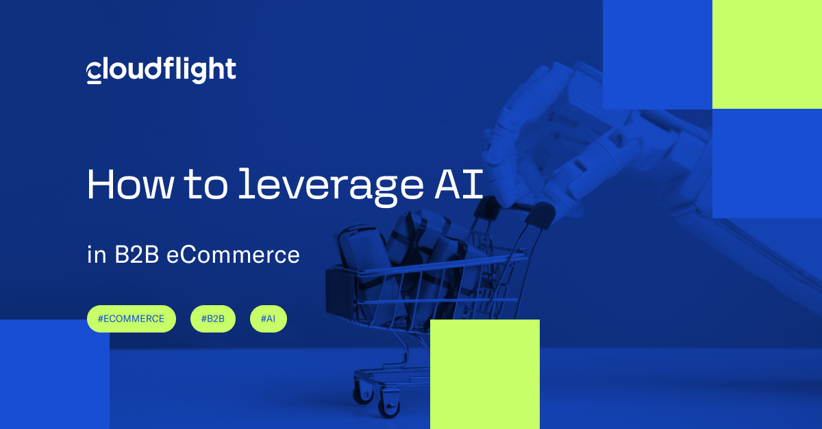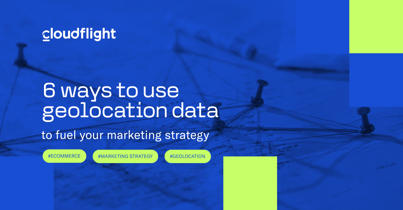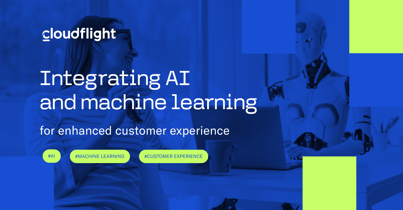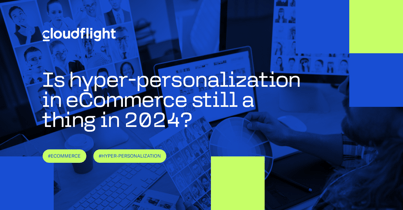The last few years must have been tough for AI skeptics. The technology has found its way into more and more aspects of business and everyday life alike and has proven itself as a force of paradigmatic transformation. It’s not being pushed just for the sake of it, too: the vast array of benefits is undeniable and is quickly becoming the foundation of modern business.
Much has already been said about how artificial intelligence can improve, streamline, and, in some cases, completely revolutionize B2C eCommerce. On the other hand, its impact on B2B is still fairly unexplored. There’s a lot of untapped potential: although the B2B environment has its own rules, challenges, and expectations, it can benefit from artificial intelligence solutions just as spectacularly as B2C eCommerce. It simply needs a different set of tools that respond to its unique nature.
If you’re a B2B eCommerce owner who’s looking to step into the world of AI, this article is for you. We’ll explore the unique needs and challenges of AI implementations in this environment and look at some of the tools that you should consider for your business to achieve substantial results.
AI in eCommerce and why the B2B sector needs to dig deeper
We recently published an eBook that goes into detail about how AI solutions have taken the business world by storm. Those solutions help optimize companies’ internal processes, improve their offerings, fine-tune customer interactions, and much more.
eCommerce is no exception to this rule. AI-powered eCommerce tools are harnessed to, for example, improve product discoverability, personalize the buying experience, and optimize internal workflows, including order fulfillment. However, the catch is that “eCommerce” tends to imply “B2C eCommerce,” and this is what these solutions are primarily built for.
B2B eCommerce is a very different environment with its own rules, challenges, and expectations. Technically, nothing stops those businesses from implementing the very same AI solutions that do wonders for their B2C counterparts. It simply won’t be a good investment because the actual needs of B2B lie elsewhere. Because of this, it’s a better plan to dig a little deeper and explore solutions that are either purpose-built for the B2B environment or seamlessly fit into it.
How is B2B eCommerce different from B2C?
At their very core, B2B and B2C eCommerce come down to the same thing: selling products online. This is effectively where the similarities end. The two types of businesses operate in very different ways, come with unique sets of challenges, and require different approaches.
Understanding those differences and assessing the needs of B2B eCommerce are the key first steps to take on the road toward choosing and implementing the right AI solutions. Before we dive into the tools themselves, first, let’s take a look at some of the major problems to be solved.
Complexity of products
While B2C customers tend to be satisfied with standardized off-the-shelf products that focus on mass market appeal, B2B clients are more picky. They often look for complex and customized products that will exactly match their needs rather than settling for “close enough.”
When it comes to artificial intelligence implementations, this means that recommendation tools that often bring spectacular results in a B2C setting aren’t likely to do much good in a B2B setting. Instead, B2B eCommerce should look toward solutions that help customers configure and customize products.
Decision-making processes
B2C clients often buy impulsively and are much more prone to emotional nudges. This is an ideal setting for artificial intelligence tools that help provide for those impulses through, for instance, time-limited marketing campaigns.
B2B procurement is the polar opposite: it’s a very deliberate and calculated process. Each purchase is strictly scrutinized, usually by more than one party, and carefully considered in terms of usefulness, value, long-term viability, and a number of other factors. There’s no place for emotions. Instead, AI tools for the B2B environment should be geared towards providing clients with detailed, high-quality data that they’ll be able to leverage in their decision-making process.
Pricing and payment models
In B2C eCommerce, this point is as straightforward as it can get. The prices are displayed upfront, customers add products to the cart, enter the delivery address, and pay with their choice of instant payment options. In a setting that prioritizes seamless experiences, AI solutions that add to this are very welcome. For instance, a business may implement a tool that finds patterns in repeat orders and reaches out to customers at the appropriate time.
In a B2B setting, each customer negotiates their own conditions and prices, which means they often aren’t displayed upfront, and the size of the order matters a lot: it’s common to see price-per-item thresholds. The payment also involves a long chain of processing the invoice, various stages of approval, and, finally, a manual transfer of the money. The B2B process is complex by design, but you can still leverage AI to ensure that the various stages and transitions between them run smoothly by, for instance, automating the process of setting individual prices for customers.
Integration with third-party solutions
Although both the B2C and B2B eCommerce environments benefit from integrations with third-party solutions, the emphasis is quite different. B2C businesses tend to find the most value in systems that enhance their marketing capabilities and the overall customer experience. They’ll often invest in AI tools that streamline payment, shipment tracking, or mailing.
The typical integrations in B2B eCommerce are more about enhancing the basics: spreading crucial information throughout the organization and its foundational systems. Because of this, B2B eCommerce emphasizes integrations with systems, such as enterprise resource planning (ERP), customer relationship management (CRM), and master data management (MDM) on both sides of the transaction. Any AI tools that enhance this kind of integration can make a big difference in the B2B environment.
AI tools to leverage in B2B eCommerce
Having established the key challenges and needs of B2B eCommerce, let’s move on to concrete AI solutions that can be implemented in response. It’s not a one-to-one arrangement: in most cases, the tools can optimize a business’s internal workflows and offerings from multiple angles at once.
Predictive analytics and decision support
B2B procurement is a complex process that involves multiple parties and careful consideration of various factors. It takes place on both sides of the relationship, the supplier and the client, although in slightly different ways. Either way, it’s difficult to avoid large numbers of variables that need to be considered in such decisions. These variables might mean a headache for people who try to make sense of them but also a huge opportunity to introduce automated tools.
In essence, predictive analytics comes down to analyzing data to identify patterns that can help businesses make more informed decisions. The introduction of artificial intelligence means the ability to process larger datasets and identify more complex patterns. This leads to more accurate predictions, whether it's forecasting sales, demand for products, or identifying potential risks and opportunities.
IBM Watson Studio is a well-known example of a predictive analytics environment that leverages AI in a big way. It provides businesses with a suite of tools for data analysis, machine learning, and predictive modeling that can be set up in a variety of configurations to reflect the company’s needs.
Image source: IBM watsonx
Inventory management
Effective management of inventory is closely related to predictive analytics. It’s always a difficult balance to strike between being able to fulfill large bulk orders that are expected in the B2B setting and not burning money by overstocking.
For some products, demand fluctuates seasonally and is fairly predictable. If, for instance, a business supplies air conditioning equipment for offices, it’s a no-brainer that it must stock up for the summer season. These are the easy cases that a basic demand forecasting solution can handle. However, things might get more complicated. In other cases, changes in demand might be related to factors that are more difficult to spot and analyze “by hand,” such as the general state of the economy, global events, or regulatory changes.
This is where forecasting solutions with AI capabilities, like, for example, Blue Ridge, can make the biggest difference. For one, they’ll be able to pick up on more sophisticated patterns from historical orders and fine-tune the numbers. Even more importantly, though, they open up the possibilities to set up real-time monitoring and analytics. For instance, it can mean scanning news sources for information relevant to a given industry and assessing its possible impact on demand even before the first orders arrive.
AI-powered CRM systems
CRM systems are essential for B2B eCommerce. Because of the complex relationship with clients that B2B businesses need to build and systematically nurture, having all the key information in one place and neatly organized quickly becomes a necessity.
Traditional CRM systems are already powerful tools, but there’s still room for improvement with the introduction of refined AI processes. Here are a few areas where AI-powered CRM systems, such as Salesforce Einstein and Pipedrive, can take their benefits to the next level:
- Behavioral analysis: AI algorithms can analyze customer behavior across various touchpoints to provide insights into preferences, purchasing patterns, and engagement levels. This helps in creating more accurate customer segments.
- Lead scoring: AI-powered CRM systems can assign scores to leads based on historical data and identify those most likely to convert. This allows sales teams to prioritize high-value leads and allocate resources efficiently.
- Emotion recognition: AI can analyze customer communications, including emails and social media interactions, to gauge sentiment. This helps businesses understand customer satisfaction levels and address issues proactively.
- Workflow optimization: AI can automate repetitive tasks within CRM systems, including data entry, lead qualification, and appointment scheduling. This allows sales and marketing teams to focus on more strategic activities.
- Behavior prediction: AI can analyze customer interactions and predict their likely next actions. This helps map out the customer journey and tailor marketing and sales efforts to align with customer expectations.
- Data cleansing and management: AI algorithms can identify and rectify data inconsistencies, duplicates, and errors in CRM databases. Additionally, AI can enrich customer profiles with external data sources for a more comprehensive view.
AI-assisted dynamic pricing
Pricing is another area where B2B eCommerce businesses can make huge strides with AI refinement. Although prices are often set for each customer individually, that doesn’t mean the whole process must happen manually.
Implementing dynamic pricing solutions, such as PROS, can revolutionize the way pricing is done in B2B eCommerce. This tool automatically balances variables, like, for example, real-time market conditions, order volumes, and customer negotiations, to suggest the optimal price for a given scenario.
Image source: PROS
The obvious benefit of such a solution is reducing the amount of work that’s needed for setting prices. With the assistance of AI, it can become as easy as reviewing the suggestion and clicking “approve.” Pricing strategies suggested by artificial intelligence can also be simply better than those created by humans. Because automated tools excel in processing vast amounts of data, it’s reasonable to expect them to better grasp the big picture. This can eliminate problems with inconsistencies and variabilities in pricing or overdiscounting.
Supply chain optimization
B2B procurement involves complex supply chains that can be difficult to manage and create many opportunities for improvement with AI. In comparison with its B2C counterpart, an order typically goes through many more steps before it finally reaches the client’s office. It’s also common to see cases, such as branded gadgets, where products only start being manufactured after an order has been placed. This, obviously, also adds to the complexity of the operation.
AI-powered supply chain optimization tools, including Coupa, can help B2B businesses optimize the routes and stages that orders go through. This results in reduced costs as well as improved efficiency and transparency of the process. Thanks to the predictive maintenance functionality, businesses can stay a step ahead of potential issues and ensure a disruption-free supply chain.
Personalized marketing
Account-based marketing (ABM) is one of the most powerful tools in a B2B marketer’s toolkit. With their precisely formulated needs, clients expect personalized offers and are unlikely to respond to generic campaigns. This can pose a significant problem: large-scale ABM requires a lot of work in research and crafting attractive propositions for each lead individually.
Image source: Demandbase
This is where AI-powered ABM tools, such as Demandbase, shine. They analyze data that either you supply or they acquire automatically to understand the unique needs of each account and identify the most promising leads. At the next step, they can help you create compelling messaging and distribute it in an optimal way.
The era of AI in B2B eCommerce is here
As we’ve explored throughout the article, AI-powered solutions bring the potential to revolutionize the B2B eCommerce landscape. Although the implementations focus on different aspects than their B2C counterparts, the results those solutions bring can be just as spectacular. They can make internal and customer-facing processes smoother, marketing activities more precise and effective, and the business as a whole more profitable. They’re quickly becoming a necessity rather than a luxury.
This isn’t a comprehensive guide to all the artificial intelligence solutions a B2B eCommerce business can implement. The landscape of AI tools is already vast and expands every day, so building such a resource wouldn't make much sense. Instead, this article is meant to be an entry point into the topic, much like our Kickstarting corporate AI eBook, and give you a taste of what’s possible regarding the most common challenges the B2B eCommerce sector tends to face. Each business is different, and this makes it impossible to provide universal solutions.
One thing is sure, though: the era of artificial intelligence has arrived, and businesses that don’t leverage it in a meaningful way are putting themselves at a disadvantage. If you’re thinking about making this decisive step forward, make sure to get in touch with our AI transformation experts, and let’s talk about your needs and optimal solutions.
Published January 19, 2024












